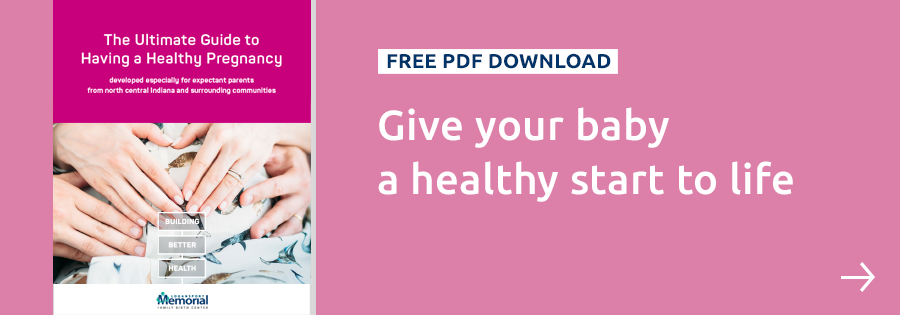This article is part of the Ultimate Guide to Pregnancy.
Folic acid is a B vitamin that your body needs daily to function properly.
The nutrient packs a lot of benefits. Folic acid is essential for men and women because it promotes cell reproduction and growth, but it's especially important for women to have a sufficient supply of folic acid. That's because getting enough—before and during early pregnancy—is key to preventing some serious birth defects, like spina bifida and anencephaly, that can happen during the first weeks of fetal development, when you might not even know that you're pregnant.

Experts at the CDC recommend that women be proactive and consume 400 micrograms (mcg) or folic acid every day for good health.
Benefits for your newborn
During early pregnancy, the neural tube of your fetus (the tissue that grows into a brain and spinal cord) is protected by folic acid. The nutrient plays a critical role in preventing prenatal defects that can occur during the early formation of your baby's nervous system.
Taking an adequate amount of folic acid can help reduce the risk of:
- Spina bifida
- Cleft lip and palate
- Premature birth
- Miscarriage and preeclampsia
More reasons to boost your intake
Folic acid's benefits are wide-ranging. The vitamin enhances the production of red blood cells in your body and promotes a steady red blood cell count, which can help prevent serious diseases and conditions, such as:
- Heart disease and stroke
- Colon and cervical cancers
- Memory loss and Alzheimer's disease
- Sleep problems
- Depression
Nutrition and supplements
Some foods are naturally rich in folate, or naturally-occurring folic acid. Good sources include:
- Lentils
- Dried beans
- Peas
- Nuts
- Avocados
- Dark green vegetables (e.g., broccoli, spinach, collard greens, turnip greens, kale, romaine lettuce, okra, Brussels sprouts, and asparagus)
- Citrus fruit (e.g., oranges, limes, and grapefruit)
- Tomato juice
It can be difficult to get the daily recommended amount of folic acid from food alone. To make it even easier, the FDA requires that food manufacturers enrich grain products—such as breakfast cereals, breads, pasta, and rice—with folic acid. In fact, some fortified breakfast cereals contain 100 percent of the recommended daily amount of folic acid.
Though you can meet your folic acid needs from the food you eat, some is lost during storage or can be destroyed by cooking. To ensure you get enough of the critical nutrient, many authorities, including the American Congress of Obstetricians and Gynecologists and the March of Dimes, recommend that all sexually-active women of childbearing age take a multivitamin with folic acid every day. If taking the multivitamin unsettles your stomach, try taking it with a small snack or switch to chew-able vitamins.
Planning to have a baby? Taking a multivitamin with folic acid during pregnancy is a must. It's not enough to drink fortifies orange juice or to just try and get your folic acid from food.
Already pregnant? If you are not taking a prenatal vitamin with folic acid yet, start taking one immediately. Prenatal vitamins are available by prescription or over-the-counter from your local pharmacy.





